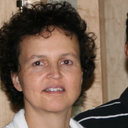Characterization of a pathogen-induced potato catalase and its systemic expression upon nematode and bacterial infection.
Кључне речи
Апстрактан
We have isolated a cDNA encoding a catalase (Cat2St) by differential screening of a cDNA library constructed from potato roots infected with the cyst nematode Globodera pallida. Expression analysis confirmed the local induction of Cat2St and showed that it was highest at the adult stage of the parasite. It also revealed that Cat2St was induced in uninfected roots, stems, and leaves of infected plants. Localized and systemic induction of Cat2St was also observed upon root-knot nematode (Meloidogyne incognita) and root bacteria (Erwinia carotovora, Corynebacterium sepedonicum) infections. Based on sequence and expression analysis, Cat2St was found to belong to the recently described class II of dicotyledonous catalases, suggesting that these catalase isoforms could also be pathogen induced. Plant-parasitic nematodes are known to induce, in the roots of their hosts, highly metabolic feeding cells that function as nutritional sinks. Whereas the local induction of Cat2St is probably a consequence of an oxidative stress of metabolic nature, the systemic induction of Cat2St shows striking similarities with the induction of systemic acquired resistance (SAR) genes. The possible role of catalase in compatible plant-pathogen interactions is discussed.


